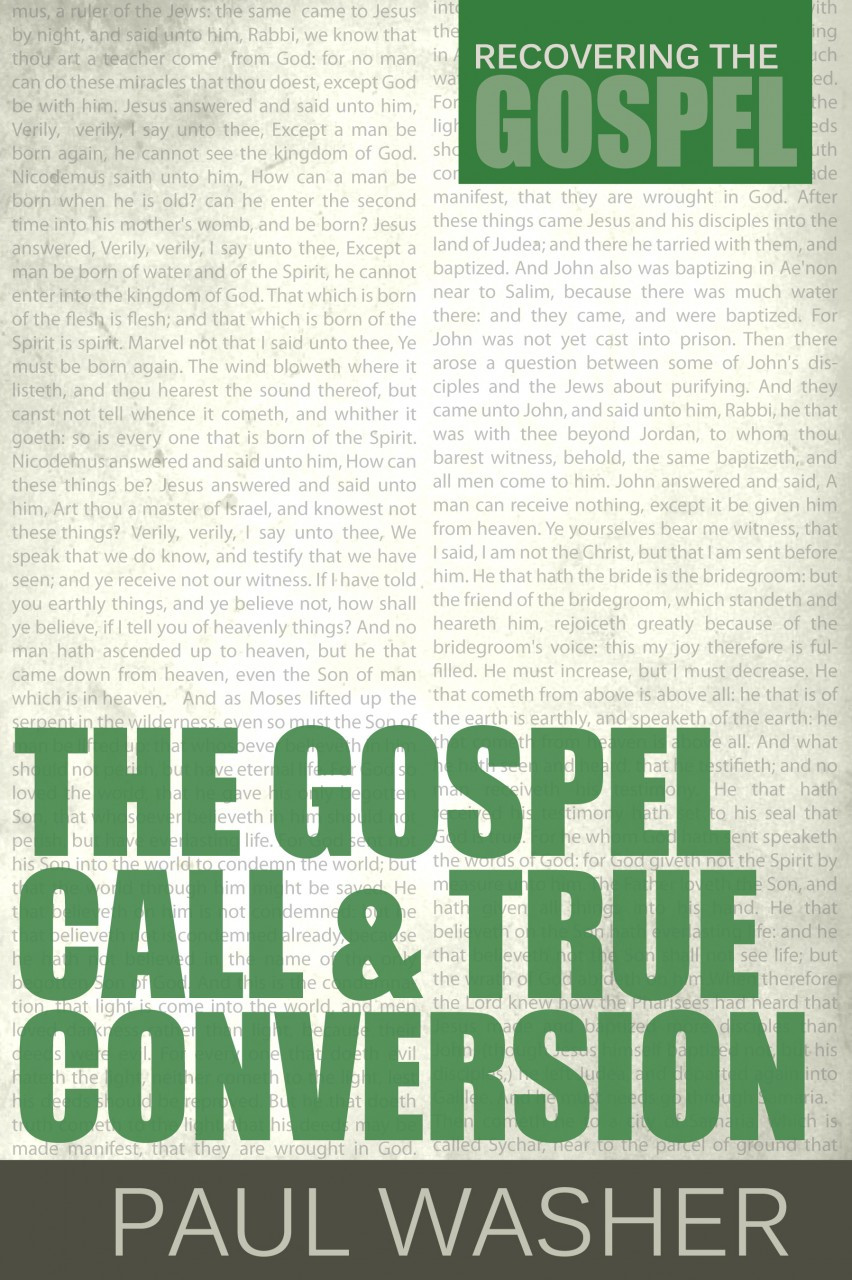
The Gospel Call & True Conversion by Paul Washer
Paul Washer of HeartCry Missionary Society is known for his
quality writing on gospel issues. This
new book, The Gospel Call & True Conversion, connects the way the gospel
changes the heart and lives of people and provides true conversion. Paul is also in this book bringing a charge
against an easy believism that states that making a decision or prayer a sinner’s
prayer is the final straw in conversion.
Paul is quick to point out that true conversion by God’s Spirit connects
repentance, faith, and the fruit of good works together. The
book turns into a sound work on conversion and repentance that is unlike any
book that I’ve read, for it provides biblical insight, practical guidance and
centers on the might work of God in Christ.
At the outset, Paul dives headlong into the concept of
repentance. Part of the message of
repentance is turning away from sin. Yet,
there is a balance that needs to be maintained between the believer turning
away from sin and not fully being free the effects of sin. Paul writes, “However, Christians will never
be free from sin completely or without need of the divine gift of
repentance. On the other hand,
professing Christians who demonstrate no real progress in sanctification and
who rarely bring forth fruit worthy of repentance should be greatly concerned
for their souls. They should test and
examine themselves to see if they are in the faith” (13). Looking to Ezekiel 14 and 18, Paul maintains
the biblical truth that genuine repentance involves a continual turning away
from sin and fleeing to God. Yet,
fleeing away from sin doesn’t mean that there won’t be hiccups along the
way. Paul is right to point out that if
rare fruit is evident in the life of the Christian, then a thorough
investigation of one’s soul is necessary.
The only criticism I have of this chapter is no mention of the practical
implications for the believer desiring to turn from sin and to God. I think the chapter would be strengthened by
mentioning the role of strong believers in concert with each other fighting
sin, the role of mentors, and the way that small groups or prayer partners
greatly add to the desire for righteousness and avoidance of sin.
The way that Paul interprets Revelation 3:20 and Acts 16:14
will greatly aid the Christian in rightly understanding evangelism. Paul writes, “When we look at Revelation 3:20
in its context, we see something quite different from that set before us in modern-day
evangelism. First, Christ is not
knocking on the door of the sinner’s heart, but on the door of the church of
Laodicea. Second, He is not asking
people to invite Him into some deep recess of their heart through praying a
prayer. Instead, Hi si reproving a group
of people who congregate in His name and commanding them to repent of their
apaty toward Him…” (58). Paul mentions
that Acts 16:14 is a much better example of apostolic evangelism because it
reveals the true nature of God who opened Lydia’s heart to Paul’s words. Focusing on Revelation 3:20 as a key passage
for evangelism puts the weight of saving grace in the hands of the sinner and
not in the one who changes heart, God alone.
Many might show little or no evidence that they are saved and in turn
will have a false assurance of their standing before Christ. This understanding of Revelation 3:20 is
dangerous because it places the weight of assurance on a particular prayer or
the sincerity of the believer and not in the hands of the Father. Paul is not saying that the gospel does not
demand a response but that response is a following after Christ that is continual
and bears much fruit. The way that the
believer is in a position to follow Christ is not the power of his will but the
faithfulness of the God who saves (63).
Practically speaking, this might look like someone not so much
remembering a specific prayer he prayed for conversion but a time in his life
where his affections for the things of God changed radically, and this was due
to God’s work through his Spirit.
The only other criticism I have comes in large part after
reading ch. 12, The Making of New People.
Paul rails against those who consider the church ‘for her supposed
abominations and call her everything from Sodom and Gomorrah to a wayward
prostitute’ (133). I don’t consider the
church to be Sodom and Gomorrah or a wayward prostitute but I think Paul misses
a point here. The right response is not
to vociferously recount that many of these so called abominations are done by
people who aren’t really Christians in the church, but to own up to the
decisions of the church at large and its destructive choices. Owning up to the sins and waywardness of some
in the church, seeking forgiveness puts an end to the pointing of fingers and
calling of names. It is better to seek
forgiveness and reconciliation even if the sin is not the ones we have
committed, then to just exclude those who have fallen prey to error. There are certainly times when we have to
stand up for the truth and draw boundaries, but in the long run acknowledging
our sin, seeking reconciliation brings the darkness into the light.
This was a really great book in seeking to bring forth the
biblical understanding of conversion, repentance, and the gospel call. I hope many will be encouraged by reading
this book.
Thanks to Cross Focused Reviews and Reformation Heritage
Books for the complimentary review copy of this book in exchange for review.
Comments
Post a Comment